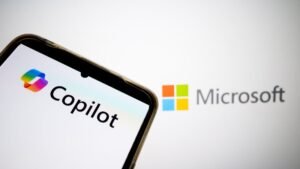Microsoft Collaborates with UiPath for AI Automation

Microsoft Collaborates with UiPath for Advanced AI Automation
Overview of the Partnership
Microsoft and UiPath have recently formed a strategic alliance aimed at enhancing enterprise automation. This collaboration introduces an integration between Microsoft Copilot Studio and UiPath Studio, allowing for seamless interaction between the two platforms.
The merger enables developers to incorporate UiPath automation agents directly within Microsoft Copilot Studio. Simultaneously, Microsoft’s Copilot agents can be utilized within UiPath Studio. This integration is designed to simplify automation processes across various platforms and technologies.
Enhancements in Automation Features
The new partnership builds upon previous work, particularly the demonstration of UiPath Autopilot within Microsoft Teams and Copilot experiences. This integration enhances automation capabilities, providing users with new tools for managing tasks and workflows more effectively.
Graham Sheldon, the Chief Product Officer of UiPath, expressed confidence in the collaboration: “We believe in the power of people, agents, and robots working together to solve tough, ambiguous business problems. This collaboration with Microsoft brings the promise of agentic automation and orchestration to life for our customers, offering unparalleled capabilities and flexibility.”
Technical Advancements from the Integration
The integration improves the UiPath Power Platform connector, enabling developers to embed UiPath agents in Microsoft Copilot Studio’s agent flows. This allows these agents to perform various tasks, trigger APIs, and then give control back to Copilot. As a result, it streamlines the orchestration processes across popular Microsoft 365 applications such as Outlook and SharePoint, as well as other external enterprise systems.
Key Features Unlocked by the Integration
Microsoft has outlined several practical use cases that this bi-directional integration supports:
Invoke UiPath Agents from Copilot Studio:
- Dynamic input parameters enable Copilot Studio agents to pass necessary data to UiPath agents, allowing for efficient handoffs in processes.
Employ Microsoft Agents in UiPath Studio:
- UiPath Studio now allows for the use of Copilot Studio agents as tools or functions, facilitating seamless process transitions back to Copilot agents.
- Manage Long-Running and Asynchronous Tasks:
- UiPath agents can return control back to Copilot Studio agents after completing tasks, allowing for the continuation of workflows only when tasks are finished.
Practical Applications in Business Processes
Examples of practical applications for this integration abound. For instance, email triaging and case assignments can be processed by Copilot agents in Outlook. Once a task is assigned, UiPath can take over for document processing and updating systems as needed. Additionally, UiPath agents have the capability to manage escalation routing via Microsoft Graph and UiPath Action Center, sending status updates back to Copilot Studio for further follow-up.
Getting Started
Developers interested in leveraging these new capabilities can begin creating agent-based workflows using UiPath Connector actions in Microsoft Copilot Studio as of today. This partnership aims to drive efficiencies and enhance productivity across a range of business scenarios, making it easier for organizations to harness the benefits of automation and artificial intelligence in their operations.






